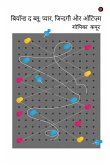We know a great deal about what factors people believe foster or impede forgiveness, many of which are related to the act itself or the transgressor's actions following commission of the act. However, we do not yet know how forgiveness is possible in cases in which all indicators point toward unforgiveness. For example, how can one come to release their intense, negative, other-directed emotion following a trauma that was severe, intentional, and perpetrated by an individual who lacks remorse, fails to accept responsibility, and continues to reoffend? The current work investigates this line of inquiry by comparing individuals' feeling rules surrounding forgiveness with their lived experiences of forgiveness or unforgiveness after extreme harm. It shows that forgiveness of the unforgivable does not arise from a divergence from, or rejection of, one's established feeling rules surrounding forgiveness. Instead, such forgiveness becomes possible through a process of redefinition of the situation.
Hinweis: Dieser Artikel kann nur an eine deutsche Lieferadresse ausgeliefert werden.
Hinweis: Dieser Artikel kann nur an eine deutsche Lieferadresse ausgeliefert werden.








